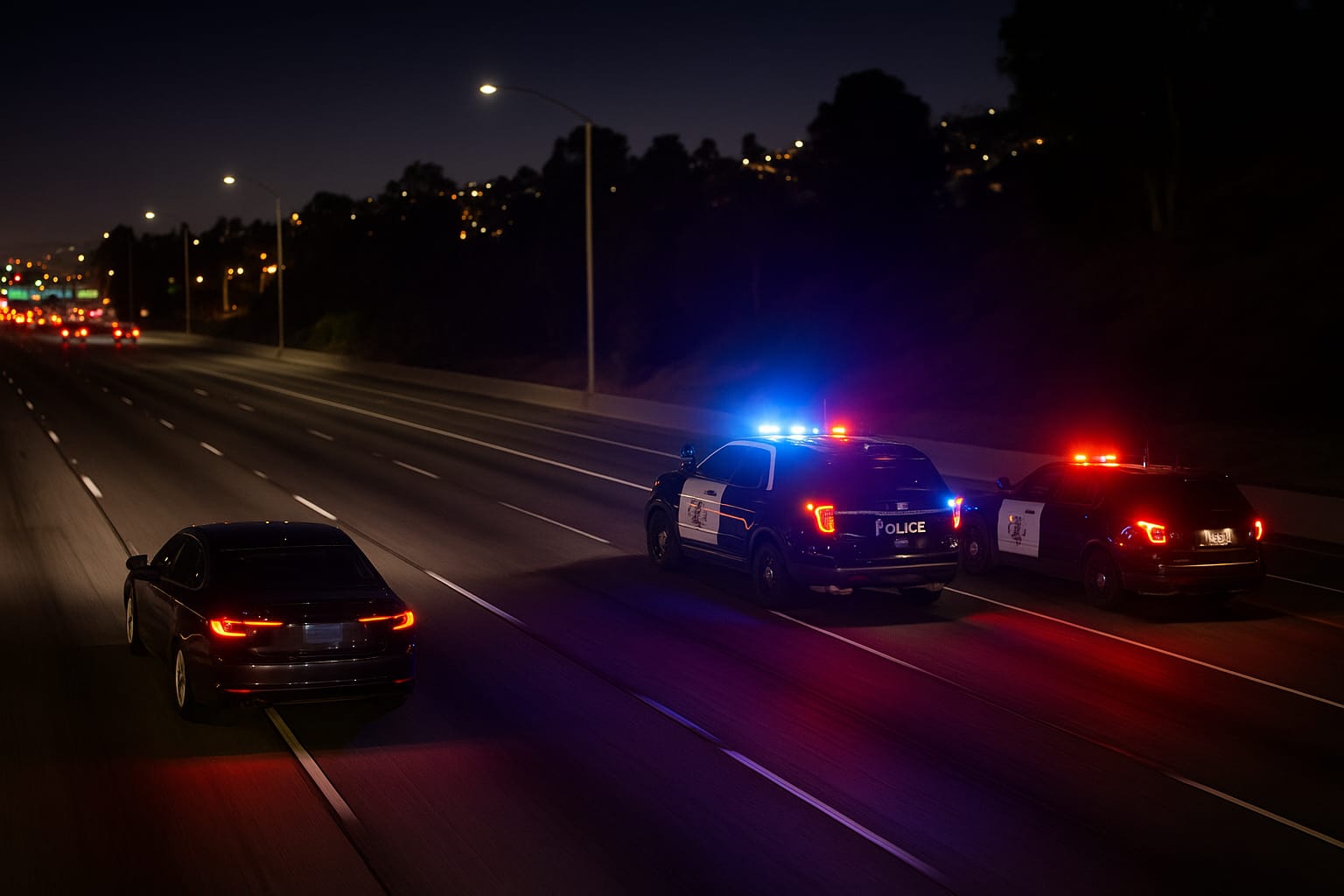California DUI: Frequently Asked Questions
To be a crime in California,
- your blood alcohol concentration (BAC) must be at or above the legal limit,
- you have an illegal chemical substance in your system that impairs your ability to drive, or
- your driving abilities were otherwise impaired.
Driving while intoxicated (DWI), operating a vehicle under the influence (OVI), or driving under the influence (DUI) are all ways to describe the same thing: intoxicated driving.
Intoxication may be the result of alcohol, another chemical substance (e.g., marijuana, prescription drugs), or both.
In California, there are many arrests made daily for DUI. Those arrested are often people like you and me: law-abiding citizens. DUI Defense Lawyer Richard Wagner works hard to help you beat a DUI charge or, at a minimum, get the best possible outcome in your unique situation.
Contact him at (714) 721-4423 to learn more about how he will help you. In the meantime, here are some of the most frequently asked questions he gets from clients when he first meets them about their DUI charges.
What is “blood alcohol concentration”?
Blood alcohol concentration (BAC) is a measurement of the amount of alcohol found in the blood, expressed as a percentage. It is calculated in grams of alcohol per 210 liters of breath or grams of alcohol per 100 milliliters of blood, and a BAC of 0.08 means there is 0.08% alcohol by volume.
Measuring BAC is a way for law enforcement to calculate the amount of alcohol someone has had and their ability to drive a motor vehicle. Read more about BAC
What are my rights during DUI traffic stops?
If you are pulled over due to suspicion of drunk driving or pulled over for a traffic stop and the police officer suspects you have broken the DUI laws, you should remember you have certain rights. Namely,
- The driver and any passengers have the right to remain silent (except you must show the police your driver’s license, registration, and proof of insurance upon request); and
- If you are a passenger, you are free to leave.
If you are arrested or detained, you have additional rights, including Miranda warnings.
- You can say you wish to remain silent and ask for a lawyer immediately.
- You have the right to make a local phone call.
If you believe your rights were violated in any way, try to write down everything you remember, including the police officer’s agency (Newport Beach Police Department, LAPD, CHP, etc.), badge number, and patrol car number.
Can I refuse a breathalyzer or blood test in Orange County, California?
You can refuse a breathalyzer or blood test. If you are 21 or older and not on DUI probation, you can refuse the preliminary alcohol screening (PAS) test without penalty.

PAS devices are the handheld, battery-operated devices police use before they arrest you. The police also use these handheld units after you are arrested in Orange County.
If you refuse the blood or breath test after you are arrested, you will suffer harsher penalties from the DMV. Read more about refusing blood and breath tests
Refusal, however, carries with it significant consequences. Those consequences depend on your jurisdiction, but you can expect any of the following:
- Your license may be suspended.
- You may be sentenced to jail.
- You may still face a DUI charge based on field sobriety test results, witness testimony, and the police officer’s observations.
- You may be fined.
Also, if you refuse, the police officer will most likely request a warrant to take your blood sample.
What are standardized field sobriety tests (FSTs)?
Standardized field sobriety tests (SFSTs) are tests approved by the National Highway Traffic Safety Administration (NHTSA). These tests are allegedly designed to help police determine whether a driver is over the legal limit or not.
There are three standardized FSTs:
- Horizontal Gaze Nystagmus Test (HGN test)
- One-Leg Stand Test (OLS test)
- Walk-and-Turn Test (WAT test)
The results of these tests may be used as evidence against you in a DUI case. Non-standardized tests, on the other hand, are not validated by NHTSA but are also admissible as evidence.
Non-standardized FSTs include:
- Finger-to-nose test
- Finger count test
- Hand pat test
- Alphabet test
- Romberg or modified position of attention test
Can I refuse field sobriety tests in Orange County, California?
Though there are potential repercussions, a person has the right to decline a field sobriety test. This is not as serious as declining to take a breathalyzer or provide a blood sample.
After a DUI arrest in Irvine, will my driver’s license be suspended or revoked?
There are two different types of suspensions. The first is an administrative suspension, and many jurisdictions will suspend your license if you refuse a breathalyzer or have a BAC over a certain level.
This means you can lose your driving privileges even when you have not been found guilty of driving while intoxicated or under the influence of a chemical substance. Read more about license restrictions and suspensions
The other type of suspension occurs when you are convicted of a DUI offense. Whether your driver’s license will be suspended or revoked depends on your jurisdiction, whether you refused the chemical test, and whether this is your first offense.
What happens after a drunk driving arrest in California?
If you are arrested for drunk driving, what happens next depends on the facts and circumstances. It’s important to know that DUI arrests result in two processes after an arrest: (1) the DMV administrative hearing, which could result in a driver’s license suspension; and (2) the criminal process, which can result in a conviction in the absence of a strong DUI defense. A conviction can lead to fines, another driver’s license suspension/revocation, time in jail, ignition interlock device (IID) installation, and other penalties.
Can I still get auto insurance in California after a drunk driving conviction?
Your ability to obtain or maintain auto insurance after a drunk driving conviction depends on whether it was your first conviction. You will likely find insurance after a first conviction, although your rates will increase significantly.
Note, however, that even if you have been convicted of only one drunk driving offense, you will still be required to obtain SR-22 insurance. SR-22 is a certificate of financial responsibility required by either your jurisdiction or a court order.
This form is not insurance, but rather proof that your auto insurance policy meets the minimum liability coverage required by state law.
Can I beat a drunk driving charge in Orange County?
It is possible to beat a drunk driving charge, although it is not typically an easy process. It will require a thorough understanding of the law and a thorough understanding of the technical nature of field sobriety tests, breath tests, and blood tests.
It is essential to comprehend breath and blood tests in order to detect mistakes (either technical or caused by people) and show the unreliability of the outcomes.
Aside from errors or unreliable test results, an alleged DUI offender may have had their constitutional rights violated. This happens more often than you might imagine. A violation can lead to the inadmissibility of some or all evidence. Without sufficient evidence, the case will be dismissed, or a jury may return with an acquittal.
You will need a drunk driving defense attorney to help you beat a DUI charge. These cases can be highly technical as well as legally complex.
Can I just plead guilty to drunk driving?
An arraignment is a hearing where the defendant can plead guilty, no contest, or not guilty. You can plead guilty, but the real question is whether you should or not. It would be a mistake to plead guilty at this time, especially without the counsel of a drunk driving lawyer in California, and there are multiple reasons for this.
- If you plead guilty immediately, you lose any opportunity to fight the DUI charge.
- If you plead guilty immediately, you also lose any opportunity for a plea deal, if that is what would be best in your unique circumstances. Admittedly, a plea deal means you would plead guilty, but the process can render a better outcome than an immediate plea of guilty. In some jurisdictions, you may be able to plead down to a lesser offense.
- The sentencing is often harsher when given in response to a plea of guilty during the arraignment, as opposed to what a plea deal would entail or sentencing after a conviction would impose. The reason is simple: you have time to mitigate and negotiate.
If it’s your first drunk driving charge, it can be tempting to plead guilty right away so that you can get the case over faster and get on with your life.
But if you do not fight to get the charge dismissed or to get yourself acquitted, it will be your first drunk driving charge. With the latter on your record, you want to keep in mind that subsequent DUI convictions will assuredly lead to harsher penalties.
Do I need a drunk driving lawyer in California to win my DUI case?
If you plan to fight your drunk driving charges, it is in your best interest to have an attorney represent you. The law is complex. The evidence can be highly technical and scientific.
Police and state expert testimony can be damaging. All these things can lead to a conviction unless you have the necessary skills and knowledge to successfully counter them. Most alleged DUI offenders do not have that kind of knowledge and skills.
How Much Does an Irvine DUI Defense Lawyer Cost?
There are a lot of factors to consider when determining the cost of a defense lawyer, like:
- The experience of the lawyer
- Whether you take a plea deal
- Whether you go to trial
- The costs of the experts if you go to trial
It also depends on whether the attorney charges by the hour or at a flat rate. The more experienced lawyers will cost more.
Contact a DUI Defense Attorney in California Today
DUI Lawyer Richard Wagner knows the law and the technical and scientific makeup of field sobriety tests, blood tests, and breath tests. He also knows how to identify and proactively address any constitutional rights violations to benefit your case. Contact DUI Attorney Richard Wagner at (714) 721-4423 to schedule a FREE CONSULTATION and get honest advice on your best legal options.


